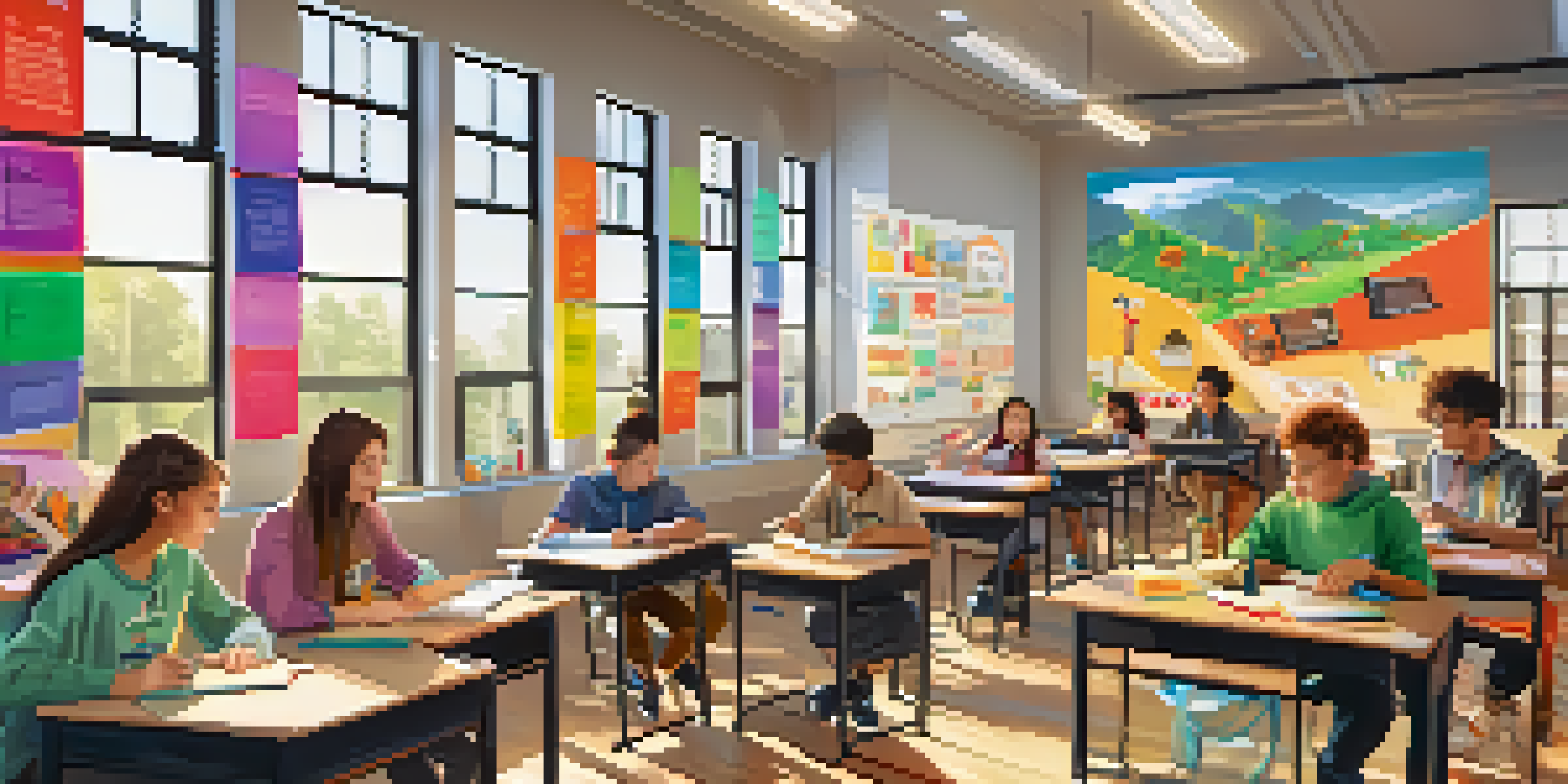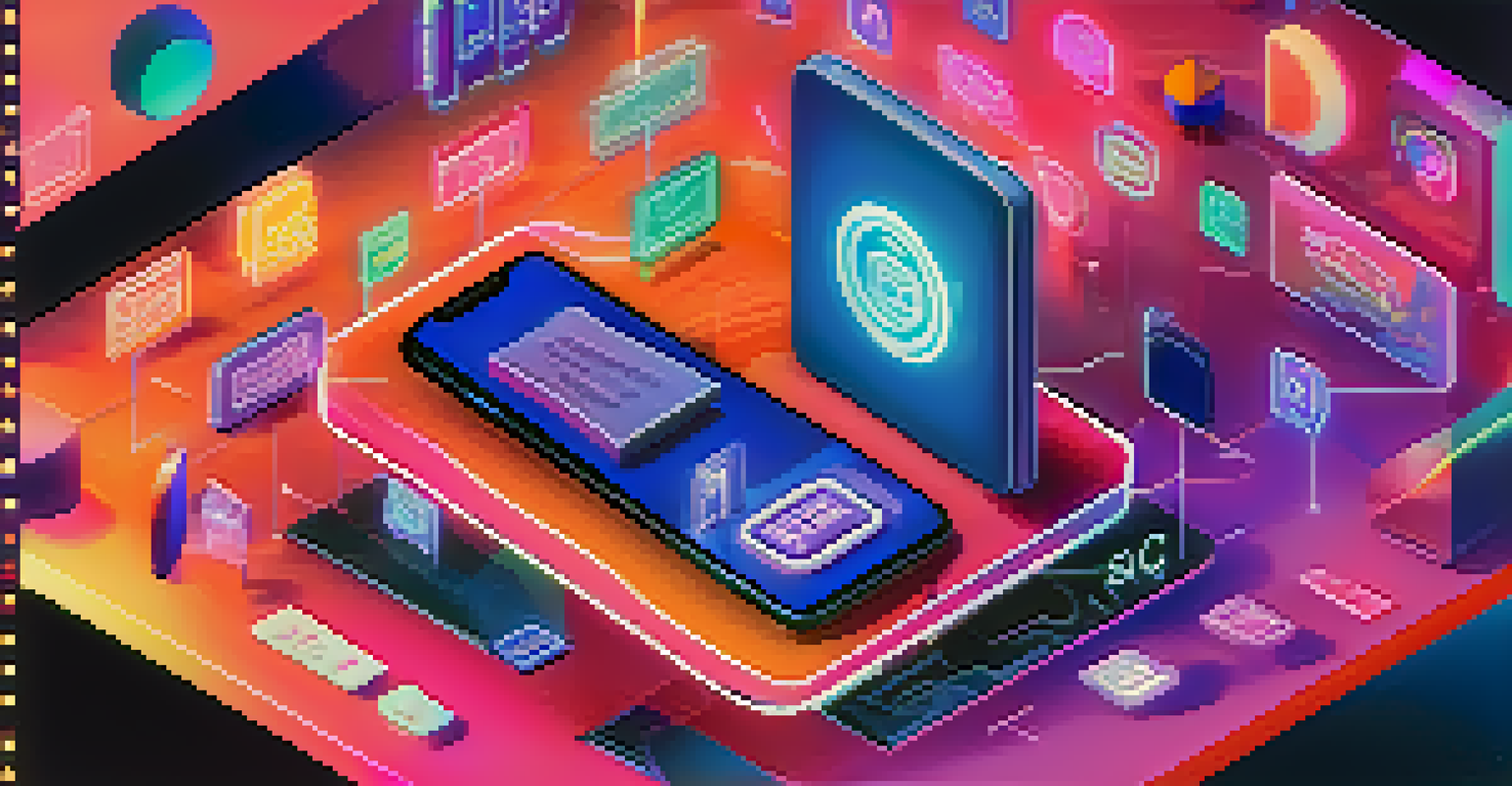NFTs in Education: Transforming Learning and Credentials

Understanding NFTs and Their Role in Education
NFTs, or non-fungible tokens, are unique digital assets verified using blockchain technology. Unlike cryptocurrencies, which are interchangeable, each NFT has distinct characteristics that make it one-of-a-kind. This uniqueness is what makes NFTs particularly intriguing for education, where individual achievements and credentials can be represented as digital assets.
The future of education is not about the technology itself, but how we can use it to create meaningful learning experiences.
In the educational landscape, NFTs can serve as proof of completion for courses, certifications, or even degrees. Imagine a world where your diploma is a secure, digital token that you can easily share with potential employers. This not only provides a reliable way to verify credentials but also enhances the overall learning experience for students.
Furthermore, NFTs can empower learners by allowing them to showcase their skills and achievements on digital platforms. This shift towards digital ownership can encourage a more personalized and engaging approach to education, where students take pride in their accomplishments represented through NFTs.
Personalized Learning Through NFT Integration
Personalized learning is at the forefront of modern education, and NFTs can play a pivotal role in this process. By utilizing NFTs, educational institutions can tailor learning experiences to individual students’ needs and preferences. For example, students can earn NFTs for completing specific modules or projects, allowing them to curate their own educational journey.

This approach not only keeps students engaged but also fosters a sense of ownership over their learning. When learners can see tangible rewards for their efforts, such as unique digital badges, they are more likely to stay motivated and committed. It transforms education from a one-size-fits-all model into a more dynamic and interactive experience.
NFTs Enhance Credential Verification
NFTs provide a secure, tamper-proof method for verifying educational achievements, streamlining hiring processes.
Moreover, educators can analyze the data behind NFT achievements to better understand student performance and areas for improvement. This data-driven insight can lead to enhanced instructional strategies and ultimately better learning outcomes for all students.
Enhancing Credential Verification with NFTs
One of the most significant challenges in education is verifying credentials. Traditional methods often involve time-consuming procedures that can be easily manipulated. NFTs, however, provide a secure and tamper-proof way to verify educational achievements, making credentialing more efficient and trustworthy.
Education is the most powerful weapon which you can use to change the world.
With NFTs, employers and institutions can instantly access a learner's verified achievements without the risk of fraud. This immediate access can streamline hiring processes and make it easier for graduates to showcase their skills to potential employers. Imagine handing over a digital wallet instead of a physical resume—this is the future of credential verification.
Additionally, NFTs can be designed to include metadata that highlights specific skills or competencies acquired during the learning process. This detailed information can help employers make informed hiring decisions, ensuring that candidates possess the qualifications they claim.
NFTs as Tools for Lifelong Learning
The concept of lifelong learning is becoming increasingly important in today's fast-paced world. NFTs can facilitate this by providing a permanent record of an individual's learning journey. Whether it's a workshop, seminar, or online course, each learning experience can be minted as an NFT, allowing learners to build a comprehensive portfolio over time.
This digital portfolio not only showcases formal education but also includes informal learning experiences. For instance, if someone attends a coding bootcamp or a creative writing workshop, they can receive an NFT acknowledging their participation. This collection of NFTs can serve as a powerful testament to a person's dedication to continuous self-improvement.
Personalized Learning with NFTs
NFTs allow students to earn unique digital rewards, fostering engagement and ownership of their educational journey.
Moreover, having a digital record of various learning experiences can enhance career mobility. As industries evolve and new skills are required, individuals with a diverse and verifiable portfolio are better positioned to adapt and advance in their careers.
Fostering Collaboration Through NFT Communities
NFTs have the potential to foster collaboration among students and educators alike. By creating NFT-based communities, learners can connect with peers who share similar interests or goals. These communities can serve as platforms for collaboration, allowing students to work together on projects or share resources.
For example, a group of students interested in a specific subject could create an NFT project that highlights their collective research or findings. This not only enhances their understanding of the topic but also builds teamwork skills that are crucial in today’s workforce. It’s a win-win situation where everyone benefits from shared knowledge and experiences.
Furthermore, educators can leverage these communities to facilitate mentorship opportunities, where experienced professionals guide students in their learning journeys. This collaborative approach helps bridge the gap between education and the real world, making learning more relevant and impactful.
Challenges and Considerations in Implementing NFTs
While the potential of NFTs in education is exciting, there are challenges to consider. One major concern is the accessibility of technology, as not all students have the same access to devices or the internet. Ensuring that all learners can participate in NFT-based education is crucial to prevent widening the digital divide.
Additionally, there are questions around the environmental impact of blockchain technology, particularly in terms of energy consumption. As educational institutions explore using NFTs, they must also consider sustainable practices to mitigate these concerns. This might involve opting for eco-friendly blockchain solutions or collaborating with organizations focused on sustainability.
Fostering Collaboration in Education
NFT-based communities enable students and educators to collaborate on projects, enhancing learning and teamwork skills.
Finally, the regulatory landscape surrounding NFTs is still evolving. Educational institutions need to stay informed about legal implications and ensure that they are compliant with data protection and privacy laws to safeguard students’ personal information.
The Future of Education: Embracing NFT Technology
As we look to the future, it’s clear that NFTs have the potential to revolutionize the education sector. By embracing this technology, educational institutions can create innovative learning environments that cater to the diverse needs of students. The possibilities are vast, from personalized learning experiences to secure credential verification.
Moreover, the integration of NFTs can enhance the overall educational experience by promoting collaboration and lifelong learning. Students will have the opportunity to build unique portfolios that reflect their skills and accomplishments, making them more competitive in the job market. This shift could lead to a more engaged and motivated student body.

Ultimately, the successful integration of NFTs in education will depend on collaboration among educators, technologists, and policymakers. By working together, we can harness the power of blockchain technology to create a more inclusive, efficient, and transformative education system for all.